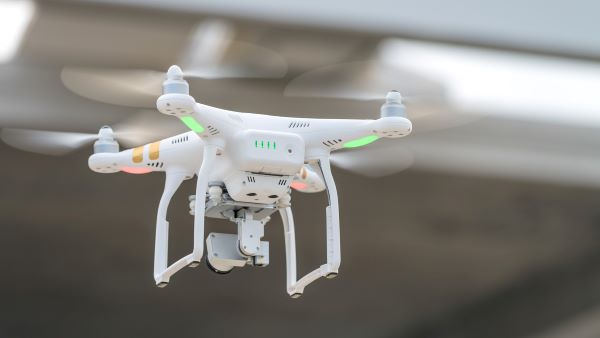Blog
Changing with the Times: How Drones Are Revolutionizing the Construction Industry

The construction industry constantly sees the introduction of new tools and processes. These innovations are designed to make your job safer and more efficient. Drones are one such technology that has made a significant impact in recent years. Drones are being used both in Virginia and throughout the nation.
Drones, which are also sometimes referred to as UAVs or unmanned aerial vehicles, have become invaluable in modern times. Drones can be partially or fully autonomous. However, most of them use a human operator. Many organizations have started to integrate drones into their construction processes. This can provide significant benefits to contractors and their customers.
Drones: A Brief History
While drones were only recently introduced into the world of construction, they have been around for many years. The first drones can trace their origins back to the early 1930s. Various militaries developed these drones leading up to World War II, when countries experimented with radio-controlled micro planes.
Over the years, drone technology continued to improve. The first camera-equipped drones appeared in the Vietnam War. However, it was not until 2006 that the first commercial drone permit was issued by the FAA.
Commercial drone usage progressed slowly over the next few years. Drones did not begin to make a major impact on the commercial market until the 2010s. Since then, the market has increased exponentially. Presently, drones are being used in many different industries, including construction.
Benefits to Contractors
Drones provide teams of contractors with a bird’s eye view of the job site. This elevated view makes it easier to monitor the location of materials and people. Allocating resources and crew members in the most efficient way possible is vital to being able to remain on schedule.
In addition, drones offer an affordable means of photographing and video recording projects. Drone-based imaging can aid in finalizing grading plans or putting the finishing touches on a project. Drones afford contractors the opportunity to overlay design documents with completed work. This real-time visual verification helps to avoid costly delays.
Drones can be further enhanced through various upgrades. These aftermarket items include mapping software and thermal cameras. Thermal cameras can allow for low-light usage. Project managers can also identify any potential heat-related concerns. GPS mapping can allow you to quickly check measurements and distances. Aerial mapping provides the ultimate precision at the job site.
Benefits to Customers
Customers and business owners want to be able to monitor the progress of their projects. Project managers can provide these updates via personalized videos and overhead images.
Multi-million-dollar projects have even incorporated drones for videography purposes. The Las Vegas Raiders' new stadium utilized this approach. Project managers released weekly videos as a means of encouraging fan involvement. This increased publicity was vital to the success of the project, since the team was relocating to a new market.
Future Applications
Drones continue to become more advanced by the day. These innovations open the door for an even wider array of construction applications. While most drones still use human pilots, efficient autonomous UAVs are the next logical step.
In fact, the University of Michigan has recently developed an unpiloted construction drone. This drone is capable of nailing shingles to a roof with computer precision. Drones that are capable of completing these time-consuming tasks could easily cut down on job costs and improve efficiency.
Autonomous construction drones are not ready to hit the open market just yet. However, that day is fast approaching. It is only a matter of time before these drones require specialized contractor licensing.
Construction is an ever-changing field, which means it’s vital to have a modernized training resource. That is why RocketCert offers accessible options for initial Virginia contractor's licensing. We also provide industry-leading ongoing education for a variety of fields.
